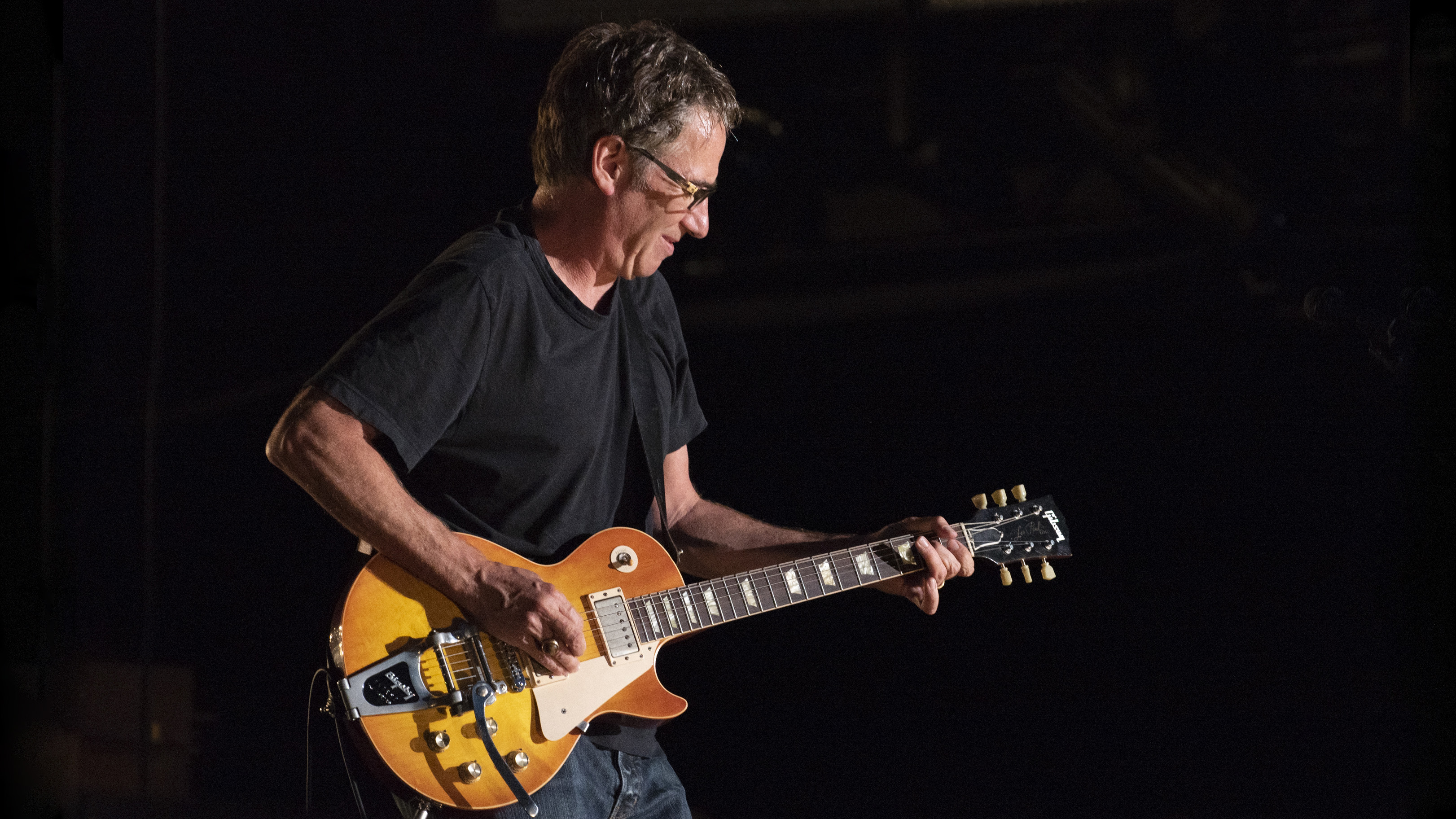
Want all the hottest music and gear news, reviews, deals, features and more, direct to your inbox? Sign up here.
You are now subscribed
Your newsletter sign-up was successful
In 2012 Stone Gossard sat down with Total Guitar backstage at a Pearl Jam show to talk about his other band Brad's then-new album United We Stand, his electric guitar approach for it and his role in the legendary Seattle bands he's been a part of – including Pearl Jam, of course.
It's sobering to consider that back then both Brad vocalist Shawn Smith and Gossard's bandmate in Seattle supergroup Temple Of The Dog were still with us. Now, for the first time online, here's the interview…
When you meet Stone Gossard in person, you begin to understand why he has played such a inspiring role in multiple landmark rock bands. Affable and humble in conversation, he unveils an enthusiasm and creative drive for the future that leaves no room for self-satisfaction and rock star ego.
We wouldn’t blame him for having some. Stone has spent 20 years helping Pearl Jam become one of the world’s most respected and successful bands without losing their integrity, so there are plenty of laurels to be rested on.
“The pressure’s always on if you’re in a band and trying to make music you love,” he tells us. “The pressure’s more on to succeed, in a sense.”
He’s not just talking about Pearl Jam. Stone’s other band, Brad, is also passing the two decade landmark. And with their recent fifth album United We Stand, he’s showing new depths as a player and new ambitions.
Pearl Jam celebrated their 20th anniversary last year; this year, you’ve reached that milestone with Brad. What led to you forming a second band so soon after the first?
Want all the hottest music and gear news, reviews, deals, features and more, direct to your inbox? Sign up here.
“Because Pearl Jam were succeeding so much at that point, I thought, ‘All you’ve got to do is just get some guys – that’s it!’ My friend Alex, who was Mother Love Bone’s tour manager, said he had a friend in Los Angeles who was a great bass player. And it turned out Jeremy Toback was a fantastic bass player – so we wrote and recorded that first record [Shame] after five rehearsals and six or seven days in the studio.
We went in with the idea we were going to make a record. We didn’t have any songs. We rehearsed and wrote songs for four or five days, then went into the studio. And it sounds like that – the record is pretty eclectic. It sounds like it’s pretty thrown together, but we immediately found something that felt like our own thing.”
Do you think Brad’s music has been able to evolve away from pressure?
“Brad are still trying to prove ourselves to some degree. We’re still looking to afford to be able to go out and tour. And even the possibility of making a living from that band is still some way out there.
"But more than anything, these days, we’re looking back and we’re so happy that we’re still a band and still making music. And we have five records that are cool. I hope we’re going to be a band until we’re old!”
"I feel I’m just starting to come into my own with my confidence about knowing what I want to hear, being patient and confident enough to play leads and make them count a bit more than I did when I was younger"
You’re associated with rhythm guitar in Pearl Jam, but on United We Stand, do you feel you’re taking a lead role, too?
“I get to play the leads on that record. It’s fun to have that responsibility and say, ‘OK, the first chorus happens and then the next verse doesn’t start for a bit. Something’s got to happen – what do you want to happen?’ And to have that opportunity is pretty cool. It’s fun.
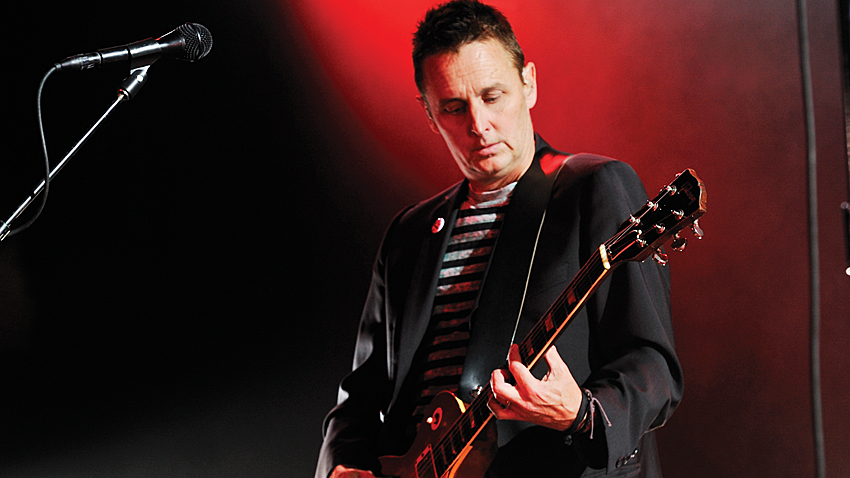
"And I feel I’m just starting to come into my own with my confidence about knowing what I want to hear, being patient and confident enough to play leads and make them count a bit more than I did when I was younger.
Mike McCready is such a fantastic lead player in Pearl Jam that it’s easy for me to defer. But it’s a great part of Brad – that opportunity to be a melody player more, and have a different-sounding rhythm section, a very different-sounding band to play with.”
That confidence definitely comes through on Bound In Time where you’re playing a melody around the vocal.
“That song and A Reason To Be In My Skin are in the area I’m most excited [about]… for the lack of a better term, the area I’d most like to explore is sort of like what The Edge does so well.
"He’s a master at finding simple melodies that aren’t him hitting G and A chords. A two- or three-note thing that’s right there with the vocal, but it’s not playing the same line: it has its own voice. That’s fun to try and figure out because it’s really about subtraction, not trying to do so much, trying to do as little as you can.
"Sometimes that’s what gets turned up in the mix, this three- or four-note thing, but the way it lays across the beat is more important than the notes. It comes in like a lyric or a melody.”
"If Pearl Jam is sounding good, half of it is because we’re going back and not changing old songs, but the way we play them"
So you appreciate simplicity more?
“Yes – simplicity and subtraction. If Pearl Jam is sounding good, half of it is because we’re going back and not changing old songs, but the way we play them. Putting in the smallest microsecond or breath and moments of rest in the riffs. It opens the groove up and makes it feel better.
"As a youngster, it took me a long time to understand that. There’s so much you can do as a player that’s not about learning anything new, other than relaxing, starting and stopping your phrases, and making sure you leave room for the other instruments to have a place.
"It’s very easy to be wound up as a kid because you’re so into what you’re doing, but also nervous with all this energy. So you fill up every moment. For Pearl Jam and Brad, they’re blessings that are constantly coming back to us – the simplicity of the blues and songwriting that comes from relaxing a little bit.”
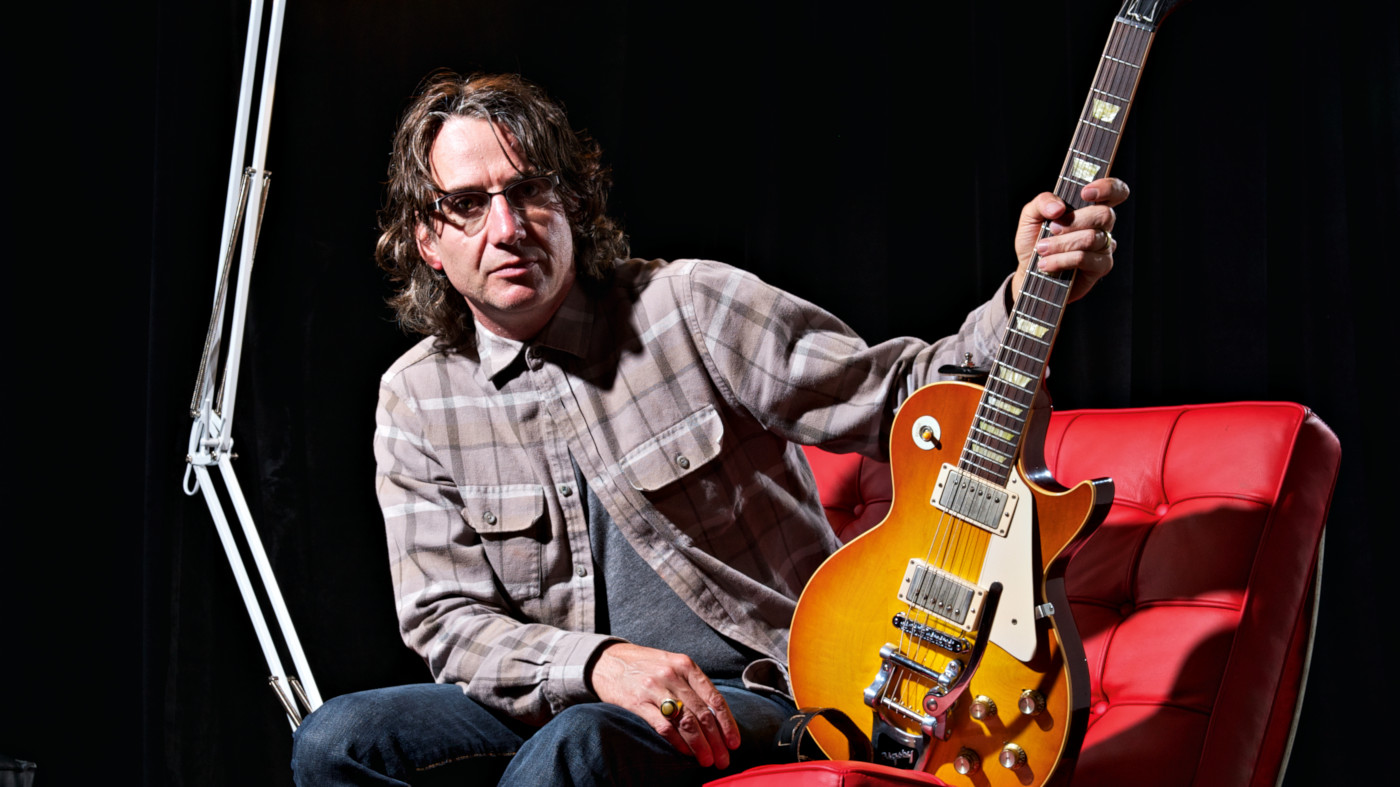
When you see Stone Gossard with a Les Paul these days (which is a lot), it’s sporting the retrofit of a Bigsby vibrato. We asked him why he’s so enamoured with them…
“It’s a recent addition,” he notes. “I started screwing around with the Bigsby and it ended up being something that I really, really appreciated. I think the main reason is, even as I play less and as I deconstruct parts for songs, I’m hitting chords and, just as it’s dying out, if you can give something, the chord can still speak in the part. But it doesn’t have to do anything more than a little wiggle. They’re a really expressive kind of tool.”
In Pearl Jam’s early days, you were lead songwriter. What was it like following the vision of other songwriters?
“I think I’m getting better. I don’t think I was great with that in the beginning, and that was a big insecurity for me, and probably the reason why I wanted to always be writing songs.
When you’re in a real band, you always have to have things a certain way, [but] eventually things will change. It took me taking a back seat to bring out some of the other players in the band who are great songwriters.
“But I still feel I have a leadership role in songwriting in my sense of arrangement and how we work in the studio, what feels right to me. I think I’m still a big part of the process in the studio in terms of that, in both Brad and Pearl Jam.
"I’m able to get satisfaction from being part of other people’s songs"
"But at the same time I definitely feel that I’m able to get satisfaction from being part of other people’s songs. You can get that sense of songwriting even if you didn’t write the original riff. I think Bound In Time is an example of that, or A Reason To Be In My Skin, where, if you have a great part, you don’t care if it’s part of somebody else’s song any more.
“The real key is doing it in as many different ways as you can in a band, and really opening yourself. Encouraging others to get in the mix and really make it participatory.
"Sometimes it can get messy and sloppy, sometimes you can get songs that aren’t the greatest, but over the long run, it’s to your advantage as a band – to have everyone feeling that sense of songwriting and ownership – because it will make them better players on your songs and other people’s songs. It’s worked out well for us.”
Is it true you like to play drums?
“I do – I’m such a desperate drummer! I’m waiting for the band that finally lets me play drums. But most of the time when I’m heading toward the drum kit people go, ‘Oh God!’”
Does it help your rhythm guitar playing to get that insight from drums?
“To me, everything is rhythm playing. If I can find the spot in the groove where I want to poke out, it wouldn’t make any difference to me if I was playing a tambourine or a cowbell, guitar or piano part. If the groove is there, I’m going to try and find a hole in the groove to somehow create more space around it. I hear the beat in a certain way – if I have a talent, that’s what it is.”
Has working with different vocalists helped you leave space for vocals?
“Yes – working with really good vocalists, too! I got to play with Chris Cornell in Temple Of The Dog, with Andy Wood and Shawn Smith, Eddie [Vedder] and Neil Young. All these people…
"I’ve been saying this a lot lately, but I’m definitely the luckiest man in rock. In any city, there will be 50 to 100 guys who are fantastic guitar players. If you went to a pub to watch them, you’d think, ‘That guy’s great, he’s way better than me!’
I’ve just managed to be in the right place at the right time. And I think I’ve had a certain stubborn perseverance to being in bands, and maybe a sense of how bands work and relationships – that’s been a positive for me. But I’m so lucky.”
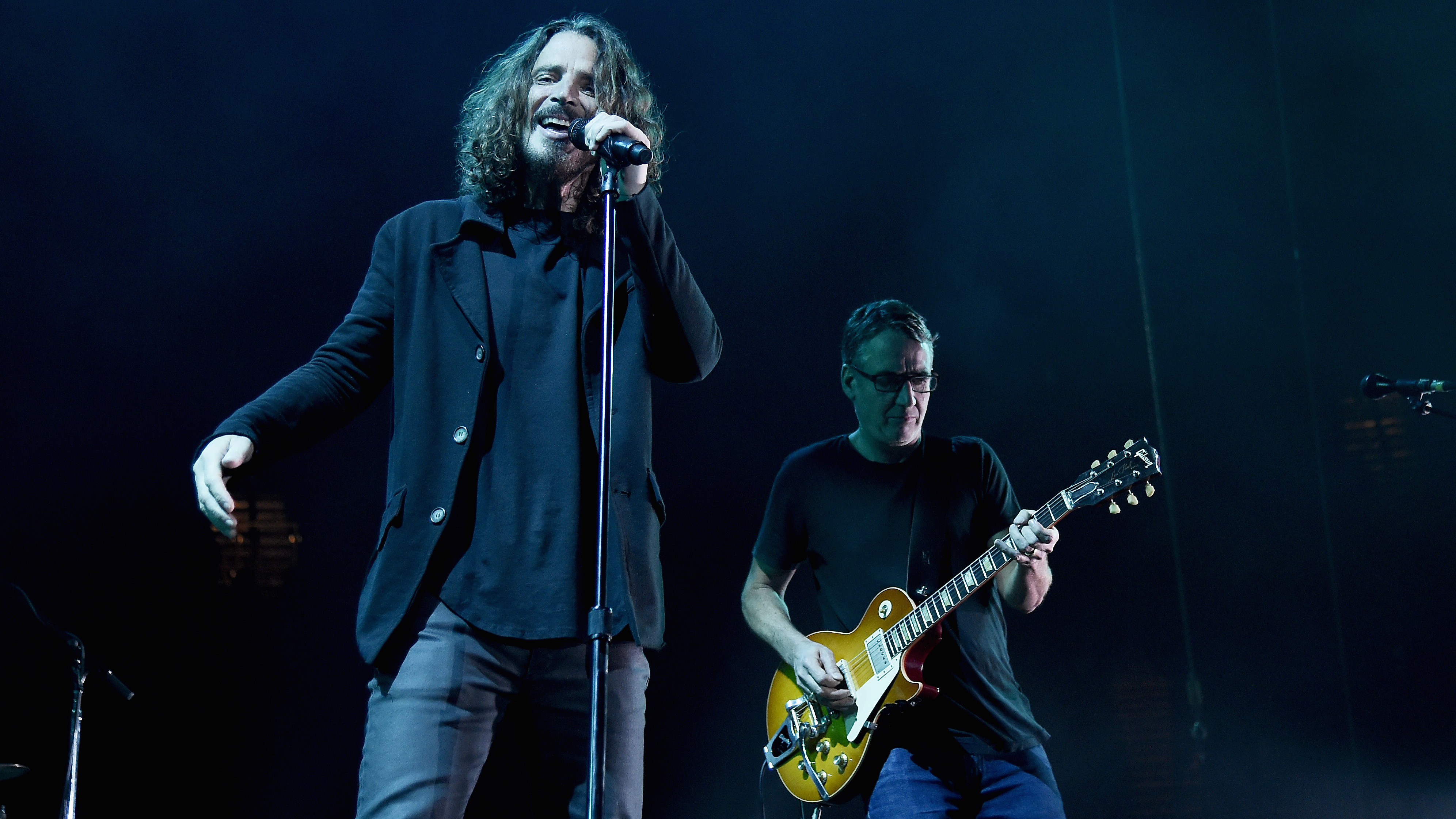
There’s also the matter of you writing some great songs along the way…
“I have a sense of arrangement. I can write a pretty good song, but if you have an Eddie Vedder or Chris Cornell, and you’re a halfway decent guitar player, they’re going to sit down with you, you’re going to have a couple of riffs for them and they’re going to say, ‘This is great – I’m going to sing something awesome over this and people are going to say you’re amazing.’
"Well, it’s just G and then D and then G and then D and then A… [laughs]. It really helps to have a great singer, for sure.”
"It’s about having an open heart and being excited – having a sense of creative opportunity and magic happening"
Does taking a guitar idea to a bandmate and seeing their reaction still drive you?
“Totally. Making a record, you don’t have anything, then a year or six weeks or two weeks later… however you make records, you’ve got something that’s always going to be there on a certain level. It’s wonderful – I love it. It still feels like you’re a kid in a sandbox, having the most fun you can possibly have with trucks and dirt.
It’s not science, and it hasn’t become about hard work. It’s about having an open heart and being excited – having a sense of creative opportunity and magic happening.
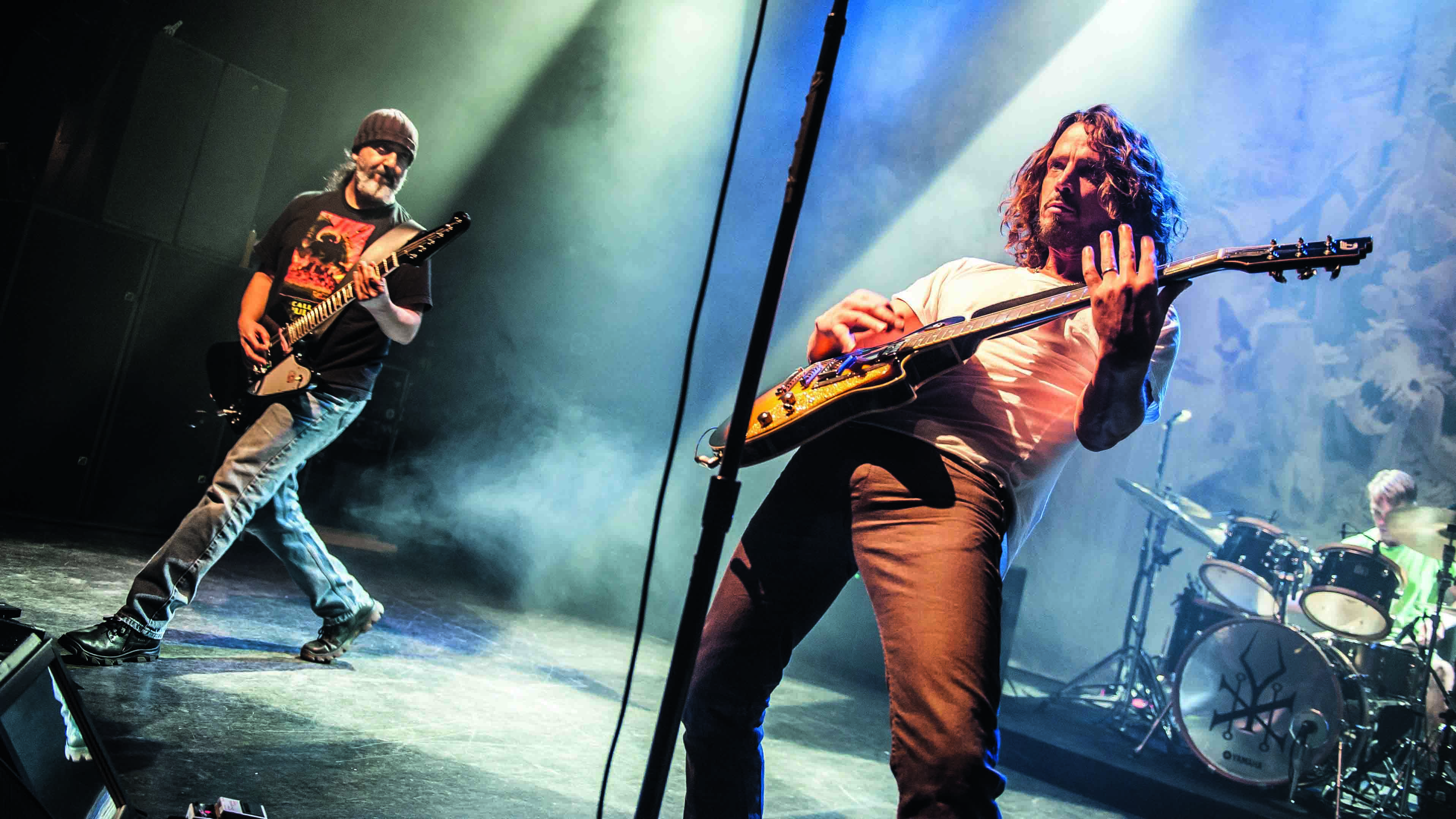
“All of a sudden you’ll pick up a guitar and play two notes and think, ‘I’ve never heard that combination of those two notes’ – even though you’ve heard it for sure because you’ve played every note on the neck of the guitar a million times.
"‘Why does that string ringing over that string all of a sudden sound different to me? What is it about it?’ Quickly, you record it, then you let it sit and come back to it the next night and see where it’s going to go.
"Sometimes it turns into something great, sometimes it’s just another song that will never come out because it’s sitting on your phone. But when it does, it’s pretty exciting.”
Pearl Jam release their new album Gigaton on 27 March

Rob is the Reviews Editor for GuitarWorld.com and MusicRadar guitars, so spends most of his waking hours (and beyond) thinking about and trying the latest gear while making sure our reviews team is giving you thorough and honest tests of it. He's worked for guitar mags and sites as a writer and editor for nearly 20 years but still winces at the thought of restringing anything with a Floyd Rose.